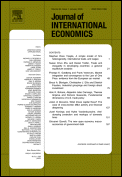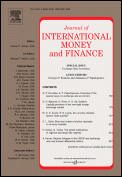Main publications
Main publications
Browse the glossary using this index
Special | A | B | C | D | E | F | G | H | I | J | K | L | M | N | O | P | Q | R | S | T | U | V | W | X | Y | Z | ALL
1 |
|---|
1996"Evaluating Debt Buybacks: What are the Alternatives to Investment?" Journal of International Economics, 40 (3/4), Maio de 1996, pags. 477-494.  | |
1998"HIC’s Optimal Trade Openness and the Modelling of the Default Penalty", Journal of International Money and Finance (17), 1998, pags. 803-811. | |
1998"HIC’s Optimal Trade Openness and the Modelling of the Default Penalty", Journal of International Money and Finance (17), 1998, pags. 803-811.  | |
2 |
|---|
2001Credit Markets in Brazil: The Role of Judicial Enforcement and Other Institutions, Chapter 5 in Defusing Default: Incentives and Institutions, Marco Pagano (Ed.) Washington: Iteramerican Development Bank, OCDE, Johns Hopkins University Press, 2001 ISBN: 1-886938-98-9 Em co-autoria com Armando Castelar Pinheiro Description: Access to capital is crucial for economic development. In many developing nations, however, high default rates present a serious obstacle to the creation of efficient capital markets. Defusing Default examines the problem of default in various countries throughout the Americas as well as public and private means of encouraging repayment of debts. Encompassing theoretical approaches and empirical data, with both contemporary and historical examples, the studies in this volume discuss how factors such as legal systems, judicial enforcement, and contractual arrangements affect the likel | |
2003A Justiça e o seu Impacte sobre as Empresas Portuguesas ISBN: 972-32-1184-X Em co-autoria com Armando Castelar Pinheiro. Analisa os principais problemas do sistema judicial português segundo a visão das empresas portuguesas e as consequências do funcionamento da justiça na tomada de decisão ao nível empresarial. Conclui que um melhor sistema judicial resultaria em maiores níveis de investimento, contratação de maior número de trabalhadores e na cobrança de preços mais baixos. O estudo procura ainda quantificar as consequências na perda de crescimento da Economia Portuguesa. Estudo financiado pelo Ministério da Justiça e pelo programa POCTI. | |
